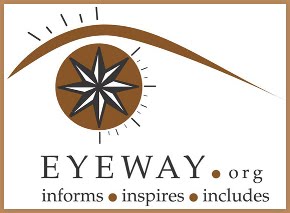The author is an Indian student, who has passed his class 12th this year with a 96% in Science from CBSE. He is shortly off to Stanford University to pursue a bachelor's in Computer Science. He recently wrote a Perspective Article for the State of Worlds Children 2013 : Children with Disabilities Report. He is also a client of Eyeway.
This was the title of one of my papers published by the UNICEF relatively recently. Being blind, it has been a regular feature for me to type out the entire text from my textbooks, since the textbooks were not available in the electronic versions (since OCR does not work well with Math and Science content). This not only added a lot of stress and anxiety, but also made me despondent at times. Further, the fact that sharing the digital textbooks across borders was considered an infringement of the international copyright law, was all the more worrisome. This meant that I could not even access those textbooks that were converted into their corresponding E-text in other parts of the world. This is the very reason that I requested the international organizations to take a serious view of the possibility of a referendum on this issue in my perspective essay.
Wednesday, June 26, brought some great news for me and millions of students with print disabilities across the globe. As a part of the international deliberation organized by the World Intellectual Property Organization at Marrakesh, Morocco, a historic copyright treaty for the blind and visually impaired was unanimously adopted after over five years of considerable effort and struggle. The treaty, among other things, provides legal recognition to the cross-border distribution of accessible versions of textbooks for the benefit of those afflicted with print disabilities, subject to certain restrictions, while also guaranteeing the right of distribution to individuals and right to translation.
In my view, this treaty is nothing less than a miracle. This is exactly what I had always envisaged -a world where everybody has access to printed material on an equal basis, a world where multinational co-operation is the norm, a world where disability is reduced to a mere nuisance. With concerted effort and implementation of the treaty in complete earnest, I am sure we will be able to achieve this 'equal world'.

No comments:
Post a Comment